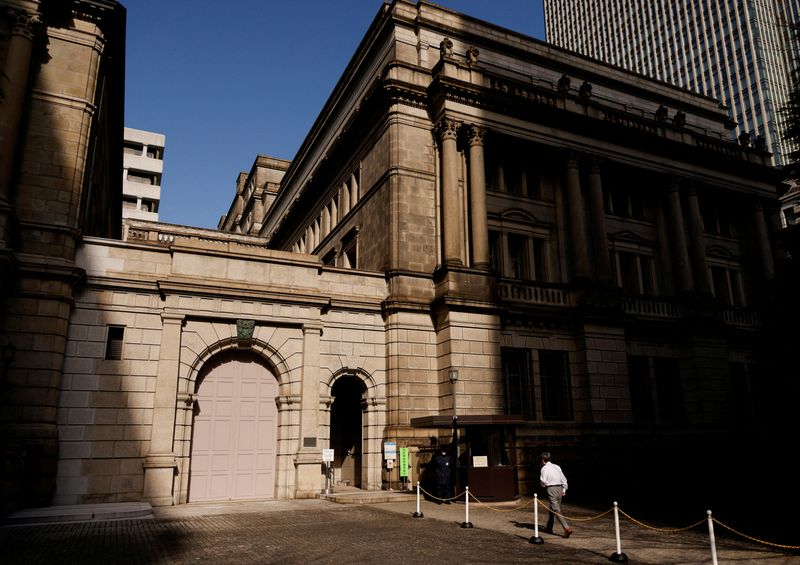By Leika Kihara
TOKYO (Reuters) - Hirohide Yamaguchi, among the top candidates to become the next Bank of Japan (BOJ) governor, warned about the danger of signing a joint policy document with the government when he was deputy governor in 2012, minutes of that meeting showed on Tuesday.
The remark suggests that Yamaguchi, who is considered as more hawkish on monetary policy than other candidates, could be wary of aligning monetary policy decisions too closely with the government's priorities if he was to head the central bank.
Under then governor Masaaki Shirakawa, the BOJ pledged to pursue "powerful" monetary easing to beat deflation under a joint document it signed with the government in October 2012.
Back then, the BOJ was facing strong political pressure to adopt an inflation target, and take stronger steps to rescue the economy from deflation and a spike in the yen that was hurting exports.
"It's very important to consider whether issuing such a document could cause problems over the BOJ's independence," Yamaguchi was quoted as saying at the central bank's October 2012 policy meeting, according to the minutes.
"I support the decision. But it won't be very good if this becomes a precedent, in which we won't be able to conduct policy unless we sign a document with the government each time," he said at the meeting when the BOJ decided to sign the document.
Under relentless political pressure, the BOJ adopted a 2% target in January 2013. It also signed a new joint statement that month with then premier Shinzo Abe's administration that committed the BOJ to hit 2% inflation as soon as possible.
Since retiring from the BOJ in 2013, Yamaguchi has been a vocal critic of incumbent Governor Haruhiko Kuroda's radical monetary stimulus, and has warned of the rising cost of prolonged easing.
With inflation exceeding its 2% target, the BOJ is now under pressure to phase out its massive stimulus. A panel of academics and business executives on Monday called for a revision to the joint statement to allow the BOJ to change policy more flexibly.
Yamaguchi is seen as among candidates to succeed Kuroda when his second, five-year term ends in April.
